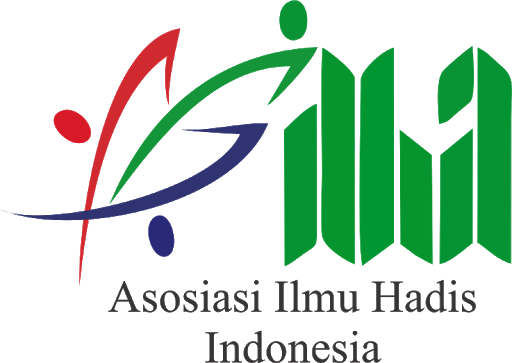The Practice of Reciting Asmā` al-Ḥusnā in Weekly Ḥalaqa
DOI:
https://doi.org/10.14421/livinghadis.2020.2335Keywords:
Asmā`ul-Ḥusnā, Ḥalaqa, Bank Wakaf Mikro, Living Hadith, Afterlife-Oriented, Worldly-Life-OrientedAbstract
The practice of reciting asmā`ul-ḥusnā by certain groups is in most cases intended to be a form of afterlife-oriented worship. Seeing the practice more closely, as practiced by the customer of the Bank Wakaf Mikro this article argues that the practice indeed has in itself a formal-substantive part, that is the recitation of asmā`ul-ḥusnā. It also at the same time argues that the very practice serves as a means to generate social/cultural benefit for the performers. Furthermore, the practice observed in this research also finds its root on the prophetic hadith and thus a practice of living hadith. It shows that there has been a transmission and transformation of the hadith in both the text and content that results in, among others, the practice of reciting asmā`ul-ḥusnā by certain groups in a greatly varying ways
 Abstract viewed: 521 times
|
Abstract viewed: 521 times
|
 PDF downloaded = 619 times
PDF downloaded = 619 times
References
Abd Rahman, R. (2011). Memahami Esensi Asmaul Husna dalam Alqur’an (Implementasinya Sebagai Ibadah dalam Kehidupan). Jurnal Adabiyah, 11(2), 150–165.
Afrizal. (2014). Metode penelitian kualitatif: Sebuah upaya mendukung penggunaan penelitian kualitatif dalam berbagai disiplin ilmu. Yogyakarta: PT Raja Grafindo Persada.
Al-Azhari. (2001). Tahdzib al-Lughah, (Bairut: Dar al-Fikr, 2001), Juz 4. Bairut: Dar al-Fikr.
Alwien, I., Ridha,. (2018). Sop & Som LKM Syariah - Bank Wakaf Mikro. Jakarta: Laznas BSM Umat.
Amin, D. (2000). Islam dan kebudayaan Jawa. Yogyakarta: Gama Media.
Anwar, M. K. (2015). Living Hadis. Farabi: Journal of Ushuluddin & Islamic Thought, 12, 72–86.
Ardimen, A. (2018). Pengembangan Kepribadian Konselor Berbasis Asmaul Husna dalam Pelayanan Konseling. Hisbah: Jurnal Bimbingan Konseling dan Dakwah Islam, 15(2), 102–115.
Bukhari, I. (1987). Shahih al-Bukhari, kitab Da’awat, bab Lillahi Miata Isman, (Juz 5). Bairut: Dar Ibnu Katsir.
Ensiklopedia Bebas Multibahasa [Https://id.wiktionary.org]. (2020, Juni 6).
Fahmi, A. Z. (2020). Wawancara dengan Supervisor Bank Wakaf Mikro.
Febriyani, F. (2018). Peran pembacaan asmaul husna dalam pembelajaran fiqih di Madrasah Aliyah Negeri Sidoarjo.
Firdaus, A. (2019). Pembiasaan Membaca Asmaul Husna Dalam Menanamkan Pengetahuan Keagamaan Pada Anak. Jurnal Al-Amin: Kajian Pendidikan dan Sosial Kemasyarakatan, 4(2), 115–136.
Hariati, L. (2020, Juni 5). Wawancara dengan Nasabah Bank Wakaf Mikro.
Huda, A. N. (2020). Keserasian Penyebutan Asmaul Husna Dalam Al-Qur’an.
Juminem. (2020, Juni 5). Wawancara dengan Bank Wakaf Mikro.
Lubis, S. H. (2011). Menggairakan Perjalanan Halaqah. Yogyakarta: Pro-U Media.
Lutfi, A. W. (2020, Juni 2). Wawancara dengan Manager Bank Wakaf Mikro.
Mubarok, M. H. (2019). Studi Living Quran, Pembacaan Rutinan Asmaul Husna di Padepokan Tawangsari Tulungagung.
Munawwir, A. W. (1997). Al-Munawwir: Kamus Arab—Indonesia. Surabaya: Pustaka Progresif.
Nasikin, S. dan H. M. (2013). Pendidikan Agama Islam dan Budi Pekerti. Jakarta: Erlangga.
Nasional, P. B. D. P. (2005). Kamus Besar Bahasa Indonesia,. Jakarta: Balai Pustaka.
Nawawi, I. (2009). Al-Adzkar. Jakarta: Widjaya.
Nindito, S. (2013). Fenomenologi Alfred Schutz: Studi tentang Konstruksi Makna dan Realitas dalam Ilmu Sosial.
O’dea, T. F. (2006). Sosiologi Agama, Terj. Tim Yasogama,. Jakarta: Rajadrafindo Persada.
Pujiastuti, T. (2020). Wawancara dengan Nasabah Bank Wakaf Mikro.
Qudsy, S. Z. (2016). Living Hadis: Genealogi, Teori, dan Aplikasi. Jurnal Living Hadis, 1(1), 177–196.
Rahajeng, D. F. (2017). Pengaruh Pengamalan Dzikir Asmaa-ul Husna terhadap Peningkatan Kinerja Karyawan pada Industri Manufaktur di Yogyakarta Tahun 2016. JURNAL AL-QARDH, 2(2), 81–93.
Rasmanah, M. (2011). Pendekatan Halaqah dalam Konseling Islam. Wardah, 12(1), 55–69.
Sari, E. K. (2020). Wawancara dengan Ketua Pengurus Bank Wakaf Mikro.
Suminah. (2020). Wawancara dengan Nasabah Bank Wakaf Mikro.
Suprayogo, I. (2003). Tobroni, Metodologi Penelitian Sosial-Agama. Cetakan ke-2,. Bandung: Remmaja Rosdakarya.
Suryadilaga, M. A. (2006). Metodologi Penelitian Hadis. Yogyakarta: Pokja Akademik UIN Sunan Kalijaga.
Widiastuti, R. (2020). Wawancara dengan Nasabah Bank Wakaf Mikro.
Qudsy, S. Z., & Dewi, S. K. (2018). Living Hadis: Praktik, Resepsi, Teks dan Transmisi. Yogyakarta: Q-Media.
Downloads
Published
Issue
Section
License
- Authors who publish with this journal agree to the following terms:
- Authors retain copyright and grant the journal right of first publication with the work simultaneously licensed under a Creative Commons Attribution License that allows others to share the work with an acknowledgement of the work's authorship and initial publication in this journal.
- Authors are able to enter into separate, additional contractual arrangements for the non-exclusive distribution of the journal's published version of the work (e.g., post it to an institutional repository or publish it in a book), with an acknowledgement of its initial publication in this journal.
- Authors are permitted and encouraged to post their work online (e.g., in institutional repositories or on their website) prior to and during the submission process, as it can lead to productive exchanges, as well as earlier and greater citation of published work.
















